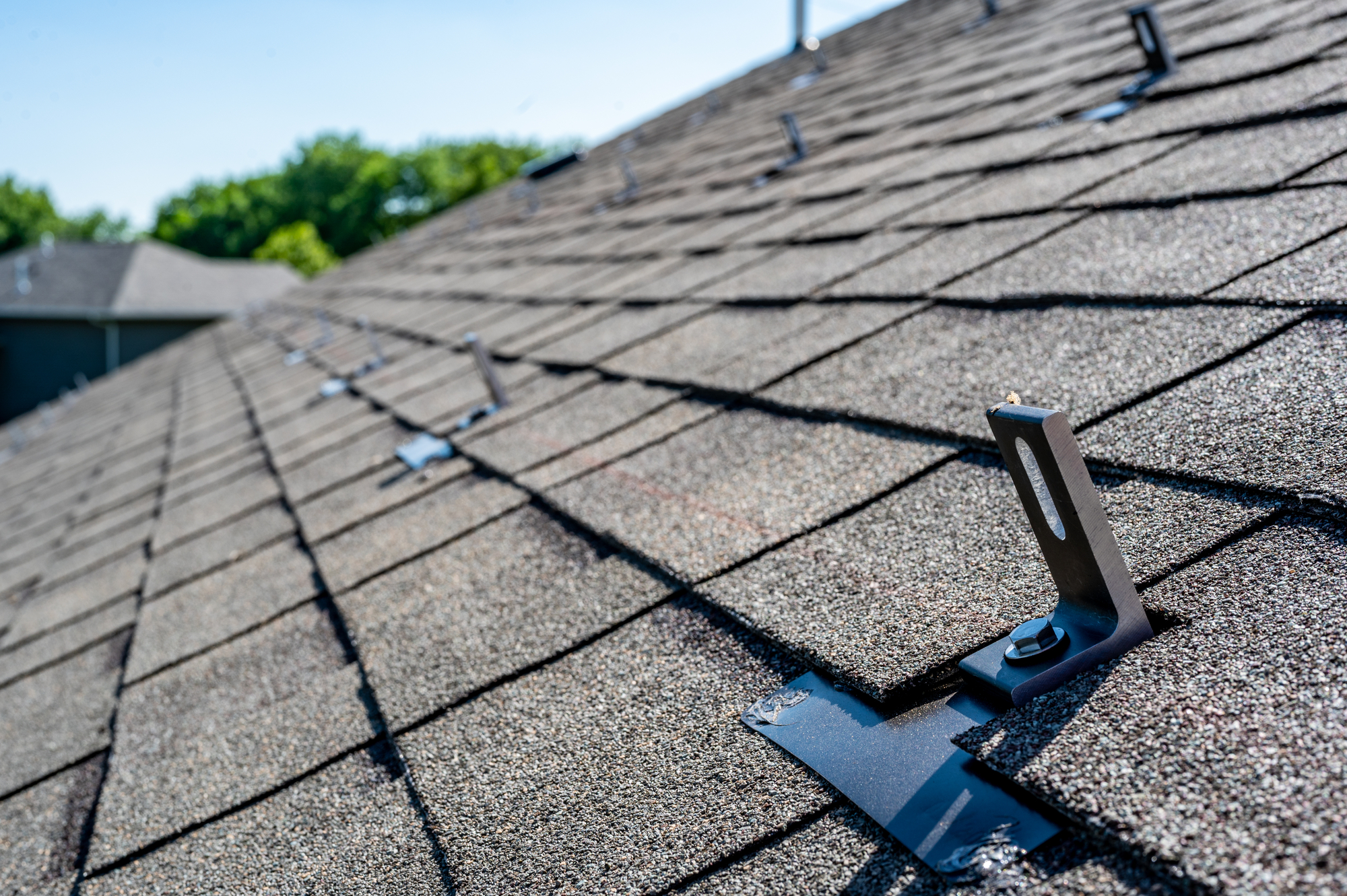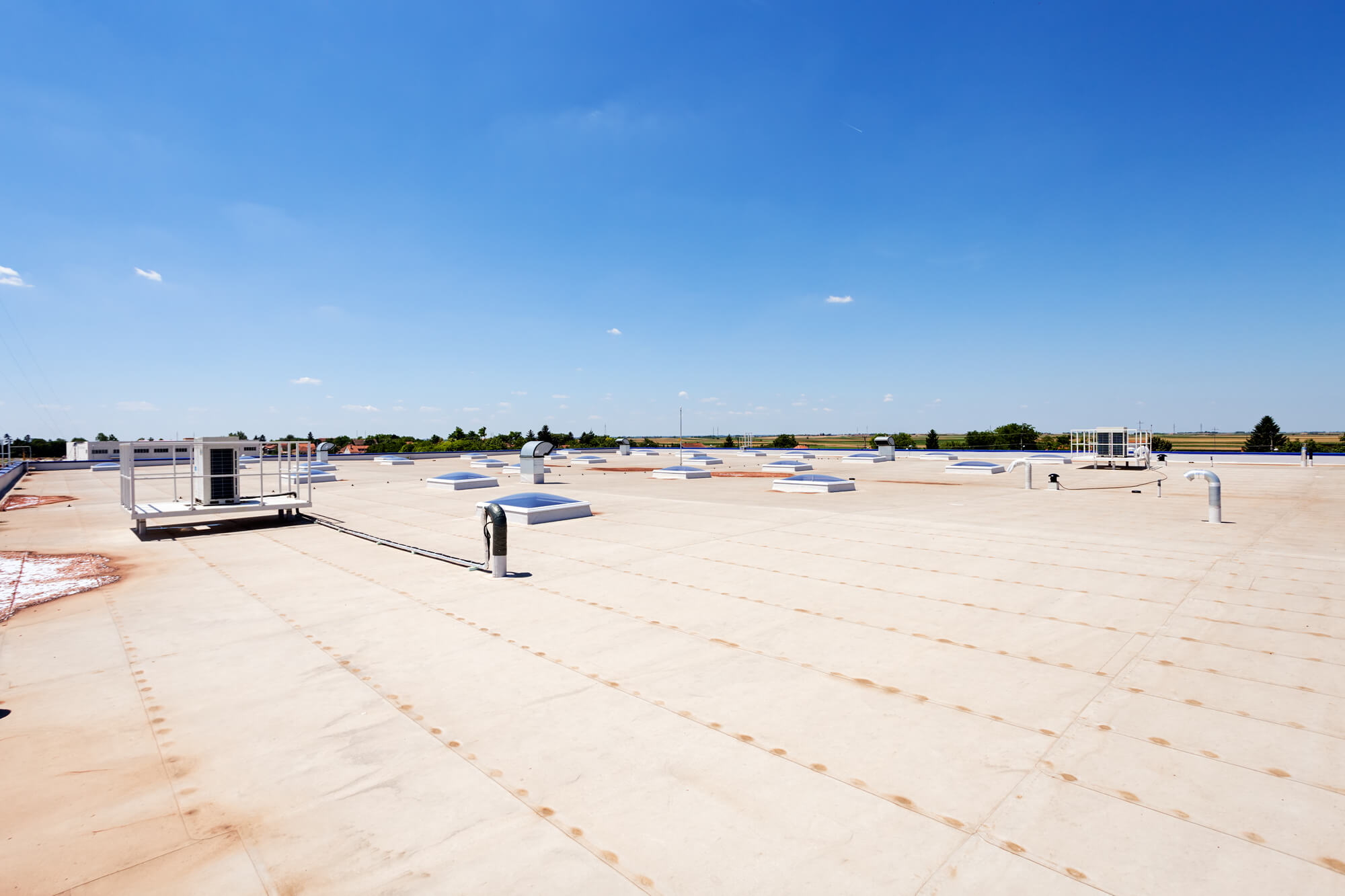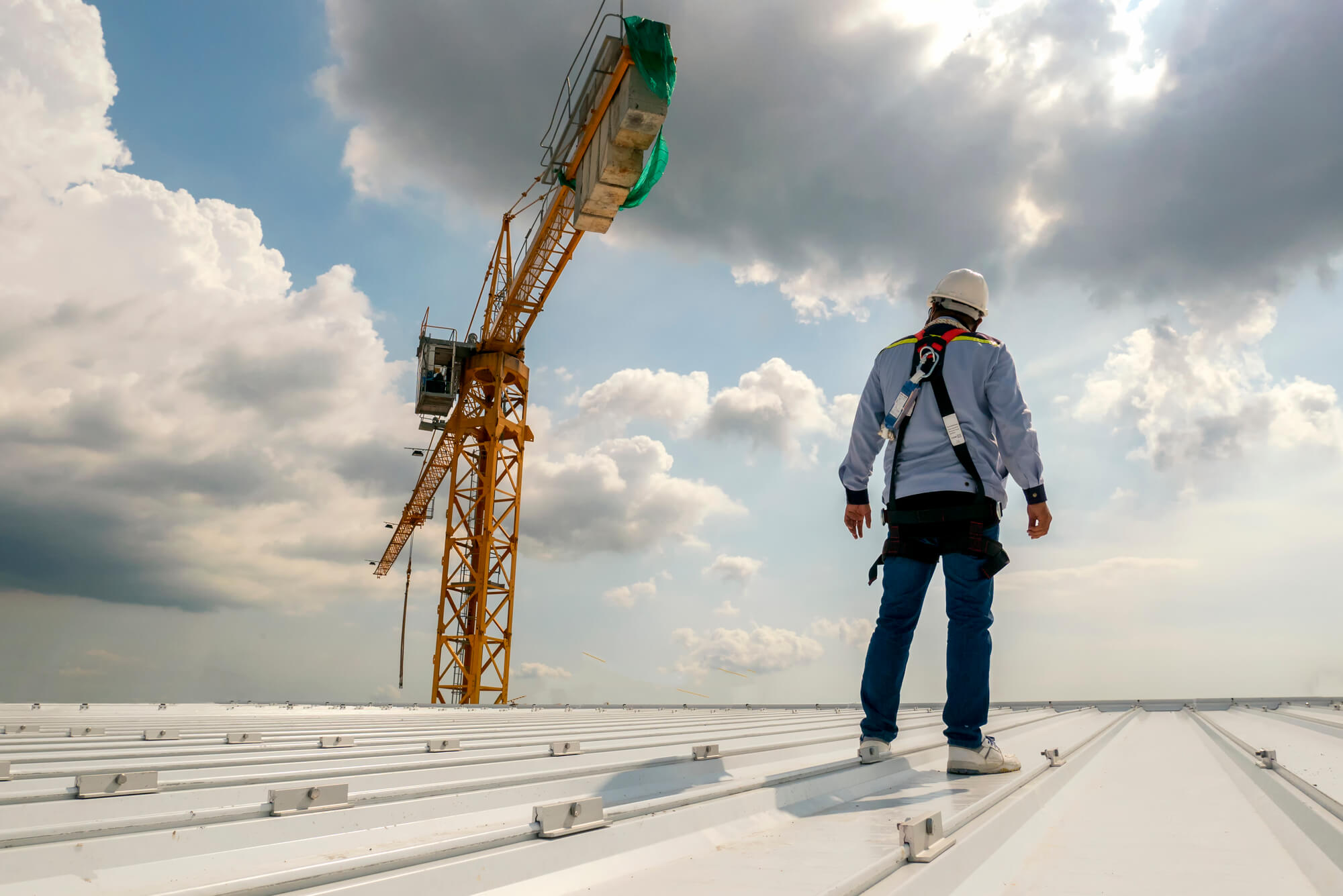December 31, 2025
Snow and Ice Management: Protecting Commercial Roofs and Building Exteriors from Winter Strain
Winter conditions like snow and ice create a very different operating environment for
Regardless of the initial quality of a commercial roof, it cannot defy the passage of time and the unforgiving impact of weather events. From relentless water damage to the onslaught of punctures and tears, the challenges are numerous. The real question is, why wait until these issues become irreparable before taking action?
Here, we'll explore the common problems that can plague commercial roofing in Florida, such as leaks, ponding water, and roof membrane deterioration. We’ll also discuss why it's more beneficial to address issues proactively and explain some measures commercial building owners can adopt to ensure roof longevity.

Roof leaks can appear due to aging roofing materials, poor installation, or damage from severe weather events such as heavy rains or storms. Clogged or damaged gutters can also contribute to water buildup on the roof, increasing the likelihood of leaks.
Roof leaks compromise the integrity of the roofing structure. They can lead to the deterioration of roofing materials, including the roof decking, insulation, and underlying structural components. Over time, unaddressed leak damage weakens the entire roof system.
Moreover, leaks usually result in interior water damage, causing stains on ceilings and walls. This problem not only harms the aesthetics of the building but also poses a risk to electrical systems and equipment.
Punctures and tears in roofing materials occur as a result of foot traffic on the roof, falling debris, and the natural aging of roofing materials, as well as improper maintenance or installation.
The consequences of punctures and tears may not be immediately apparent, but they get worse as time passes.
For instance, punctures and tears compromise the weatherproofing capabilities of the roof, as they create openings through which water can infiltrate and lead to leaks and further damage to the roofing structure.
Additionally, water intrusion causes extensive damage to the building's interior, including damage to insulation, ceilings, and equipment.
Ponding water occurs when water accumulates and stands on the roof's surface for an extended period. It is often caused by inadequate drainage systems, improper roof slopes, or the presence of debris blocking drainage pathways.
Ponding water can exert significant weight and stress on the roof structure, leading to the potential for structural damage. It can contribute to the deterioration of roofing materials, particularly in areas where water accumulates.
Ponding water also increases the risk of leaks and can lead to water infiltration, which may damage insulation, ceiling materials, and interior finishes.
Roof membrane deterioration is often a result of prolonged exposure to UV radiation, extreme weather conditions, and the natural aging of roofing materials.
A roof membrane typically consists of a waterproofing layer, often made of materials like modified bitumen or single-ply membranes (such as EPDM, TPO, or PVC). Poor installation practices, including improper seam sealing and flashing details, can compromise the membrane's integrity.
A lack of regular maintenance, such as cleaning debris or addressing minor damage, can also hasten the wear and tear of the membrane and make it more susceptible.
Deteriorating roof membranes lose their effectiveness in preventing water infiltration and protecting the building's interior. They become brittle, cracked, or blistered, allowing moisture to penetrate and causing leaks.
Finally, a deteriorating roof membrane can lead to water damage inside the building, affecting the integrity of the insulation, ceilings, and valuable assets. In extreme cases, a compromised membrane may necessitate a costly roof replacement, disrupting business operations and incurring significant expenses.
Poor insulation can result from improper installation, the settling of insulation materials, or insufficient insulation thickness.
Inadequate insulation reduces the roof's ability to regulate temperature, leading to increased energy consumption and potential moisture-related issues within the roof assembly.
Energy bills may rise significantly as the building struggles to maintain a consistent temperature. Moreover, poor insulation can lead to moisture accumulation within the roof structure, which can cause mold growth and structural damage if not addressed.

Schedule professional roof inspections at least twice a year, typically during the spring and fall seasons. Roof inspectors have the expertise and tools to identify potential vulnerabilities that may go unnoticed by the untrained eye.
Through thorough inspections, issues like small leaks, punctures, or membrane deterioration can be detected early, allowing for timely intervention. Inspections also evaluate the condition of flashings, seals, and other components that contribute to the roof's integrity.
When issues are identified during inspections, you must schedule repairs as soon as possible. Roof restoration and patching should be carried out by experienced professionals to ensure they are done effectively and with the right materials, which can be:
Neglecting minor problems can lead to more extensive and expensive repairs or even the need for a full roof replacement.
Adequate drainage systems prevent ponding water and the associated risks. Therefore, you need to engage with professional contractors to clean gutters and downspouts and prevent debris buildup, which can obstruct the flow of water.
Additionally, experts make sure drains and scuppers are clear and free of blockages to allow water to flow away from the roof.
Debris accumulation can lead to punctures and tears in roofing materials, as well as blockage of drainage paths. Removing leaves and dirt from the roof reduces the risk of damage while enhancing the overall aesthetics of the commercial building.
Consider applying roof coatings and sealants as part of your maintenance plan. These protective layers act as a barrier against UV radiation, extreme weather, and other environmental factors. Regular application and maintenance of coatings help ensure their effectiveness.
Schedule inspections to check the insulation within your roof and check whether it is properly installed and in good condition. Proper insulation contributes to energy efficiency and helps prevent moisture-related issues, such as condensation and mold growth.
Address any damaged or deteriorated insulation promptly to maintain the roof's energy performance.
Roof ventilation regulates temperature and reduces moisture buildup within the roof assembly. Therefore, you need to ensure vents are unobstructed and functioning correctly to promote proper air circulation.
Professional roofing contractors possess specialized knowledge and extensive experience in various roofing systems and materials. Their expertise allows them to assess the condition of your commercial roof and recommend the most suitable solutions.
With years of hands-on experience, they are well-versed in industry best practices and can complete your roofing project to the highest standards.
Safety is a top priority for professional roofing contractors. They adhere to strict safety protocols and guidelines to protect both their workers and your commercial property.
Professionals are also well-versed in local building codes and regulations, ensuring your roofing project complies with all legal requirements. By entrusting your roofing needs to professionals, you mitigate potential risks and liabilities associated with non-compliance and accidents.
While professional roofing services may come with an initial investment, they prove cost-effective in the long run. Contractors can identify and address roofing issues early on, preventing them from escalating into major and more expensive problems.
Properly installed and maintained roofs have a longer service life, reducing the frequency of replacements and associated expenses.
Professional roofing contractors excel in project management and can finish your roofing project on time and within budget. They have access to the necessary equipment, tools, and resources to streamline the installation or repair process.
Efficient project management minimizes disruptions to your business operations and maximizes project efficiency.
Professional roofing contractors stay updated with the latest roofing technologies, materials, and innovations. Therefore, they can offer several roofing solutions tailored to your specific needs, such as:

If you’re looking for trusted solutions to maintain, repair, or enhance your roofing system, BlueTeam is your one-stop destination for comprehensive roofing services, as well as top-tier restoration, renovation, and construction expertise.
With a proven track record of excellence and a team of experienced professionals, we’re here to enhance the longevity and functionality of your commercial investments. Contact us today to book a quote!